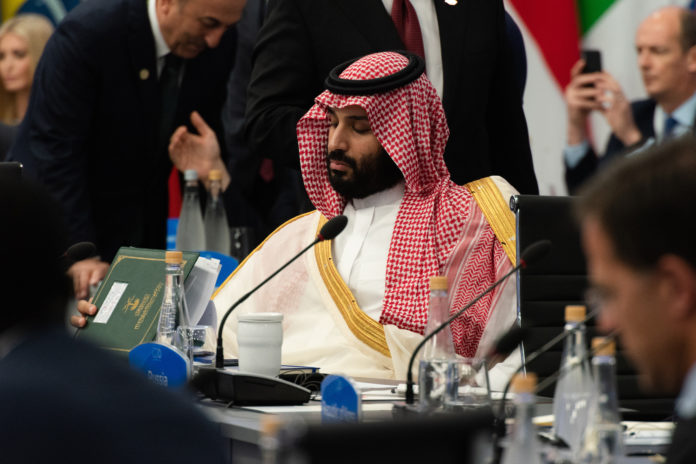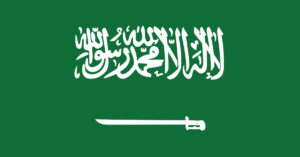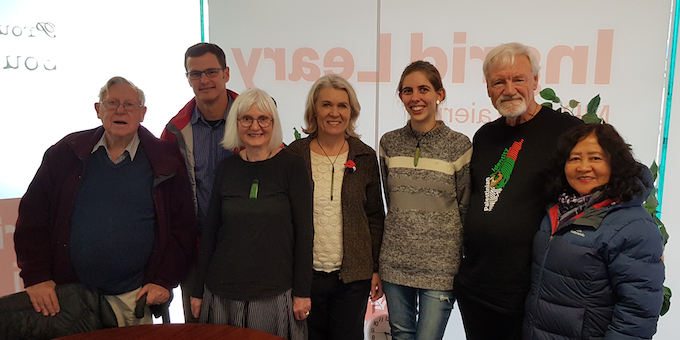
Foreign Policy (1/10/20) depicts “Iran’s proxy threat” as “the real problem.”
“Proxy,” defined as someone who works on someone else’s behalf, is a term of delegitimation in international politics: It undermines the credibility of both those who are accused of being “proxies” and those accused of having “proxies.” In the former case, the term suggests that the party in question is not representing its peoples’ interests, but rather those of an outside actor. The nation described as having proxies is implicitly accused of meddling in another country’s affairs.
When I searched the databases of the New York Times, Wall Street Journal and Washington Post for the last ten years, I found that variations on the terms “America’s proxy,” “American proxy,” “United States’ proxy” and “US proxy” appeared a total of 183 times. In contrast, all forms of the term “Iranian proxy” were used a total of 798 times. In other words, Iran is said to use “proxies” more than four times as often as the United States, even though the US has a vastly larger global footprint than Iran. Thus, these outlets are downplaying the extent of US interference in other countries, while frequently portraying Iran as undercutting other peoples’ independence.
Saudi Arabia and Yemen

A Washington Post column (3/4/21) debates whether Saudi Arabia is an “ally” or a “partner”–but “proxy” is not on the menu.
A Washington Post column (3/4/21) by Aaron David Miller and Richard Sokolsky, two long-time State Department employees, mentioned “Iranian proxies in Lebanon, Syria and Iraq.” The article is about the US relationship with Saudi Arabia, and at no point is the Saudi government described as America’s “proxy.”
Yet there are grounds for applying the term. Rutgers University historian Toby C. Jones (Jacobin, 10/22/14) provides an overview of the trajectory of US/Saudi relations, writing:
Although American political and corporate interests surrendered direct control of Saudi Arabia’s oil resources in the early 1980s, they were present in the eastern province, in and around Shiite communities, from the late 1930s through much of the 20th century.
Fearful of politically mobilized Saudi labor in the mid twentieth century, the Arabian American Oil Company (which was known to employ CIA officials) coordinated closely with Saudi leaders from the 1940s until the 1970s in building a centralized, discriminatory political order that was anti-democratic, anti-labor, and that sought to create disciplined and docile bodies in a place where the al-Saud lacked much in the way of political legitimacy….
American policymakers no longer think in terms of the interests of an American oil company that controls Saudi oil. But its practical and political economic interests have changed very little. Since the late 1970s, in fact, these connections have proliferated, most importantly through weapons sales and the entanglement of the American military/industrial complex with Saudi oil wealth. There is no greater engine for the recycling of Saudi and Gulf Arab petrodollars than massive and expensive weapons systems. These sales are largely justified in the language of security and by invoking regional threats like Saddam Hussein and whatever regime sits in Tehran. The reality, though, is that they are hugely profitable.
While the United States is no longer dependent on importing Saudi oil the way that it once was, the State Department makes clear that it nevertheless regards Saudi reserves as critical, saying that “Saudi Arabia is the third leading source of imported oil for the United states, providing about half a million barrels per day of oil to the US market.”
The department also emphasizes that oil is not the only reason the US thinks the Saudi government is useful, writing that
Saudi Arabia’s unique role in the Arab and Islamic worlds, its holding of the world’s second largest reserves of oil, and its strategic location all play a role in the longstanding bilateral relationship between the Kingdom and the United States.
It calls Saudi Arabia “a strong partner in security” and “in military, diplomatic and financial cooperation,” and says that the two countries work together in “counterterrorism efforts” (a rather dubious term for such operations).
Furthermore, the State Department highlights the continued relevance of Jones’ point about “the entanglement of the American military/industrial complex with Saudi oil wealth,” noting that “Saudi Arabia is the United States’ largest foreign military sales (FMS) customer, with more than $100 billion in active FMS cases.”
A sponsor/“proxy” arrangement typically involves a power asymmetry in which a weaker party is dependent on a stronger one. A Congressional Research Service report from March report is telling in this regard:
The Al Saud have sought protection, advice, technology and armaments from the United States, along with support in developing their country’s natural and human resources and in facing national security threats. US leaders have praised Saudi cooperation in security and counterterrorism matters, and have sought to preserve the secure, apolitical flow of the kingdom’s energy resources and capital to global markets.
Clearly, the state that seeks “protection,” as well as “support” in resource development, is in a subordinate relationship with the state they’re asking to provide these. My argument is not that there are never any tensions in the US/Saudi relationship, or that the Saudi government never has any leeway to chart its own course, but it is remarkable that, given how readily the word is employed in Iranian contexts, the sample I examined included no cases where Saudi Arabia was called a US “proxy.”
This rhetorical choice obscures the degree of US complicity in Saudi Arabia’s internal crimes, which include “repression of the rights to freedom of expression, association and assembly,” according to Amnesty International:
Among those harassed, arbitrarily detained, prosecuted and/or jailed were government critics, women’s rights activists, human rights defenders, relatives of activists, journalists, members of the Shi’a minority and online critics of government responses to the Covid-19 pandemic. Virtually all known Saudi Arabian human rights defenders inside the country were detained or imprisoned at the end of the year. Grossly unfair trials continued before the Specialized Criminal Court (SCC) and other courts. Courts resorted extensively to the death penalty and people were executed for a wide range of crimes. Migrant workers were even more vulnerable to abuse and exploitation because of the pandemic, and thousands were arbitrarily detained in dire conditions, leading to an unknown number of deaths.
Crucially, referring to the Saudis as US “proxies” would make it unambiguous that the US, which has provided targeting assistance, weapons, logistics, training and intelligence sharing to the Saudis (In These Times, 2/4 /21), has direct responsibility for the war on Yemen that has killed nearly a quarter of a million people (The Nation, 3/27/21) and brought famine to the country (CNN, 3/11/21).

NBC (5/24/19) suggests that it’s Iran’s “proxies”—and not the fact that it’s one of the largest Middle Eastern countries—that gives it a significant role in the Middle East.
Perversely, Yemen’s Houthi movement is constantly decried as an Iranian “proxy.” The Wall Street Journal (9/9/19) asserted that “using the Houthis as its proxy, the Iranian regime has established a strategic outpost in war-torn Yemen.” Thomas Friedman wrote in the New York Times (11/29/20) that “the Saudis have been trying to [fight a shadow war] versus Iran’s proxies in Yemen.” The Washington Post (2/19/21) alleged that “Iranian proxies, such as the Houthis in Yemen, are not rewarding Biden’s more diplomatic approach with restraint.”
Seeing the Houthis as mere Iranian “proxies” is an over-simplification and a misrepresentation. Political scientist Stacey Philbrick Yadav (Jadaliyya, 1/21/20) argued that the Houthis should be seen as Iran’s allies rather than its “proxies,” pointing out that
the Houthi insurgency predates substantial Iranian involvement. It has existed as an armed movement since 2004, and developed out of a broader populist movement during the 1990s.
Similarly, Vincent Durac of University College Dublin (The Conversation, 9/19/19) said that
while the Houthis have benefited from support from Iran, the suggestion that they constitute little more than an Iranian proxy is wide of the mark.
There is limited evidence that Iran controls the Houthis’ strategy. The Houthis reportedly ignored Iranian advice not to take over Sanaa in 2014 and, while the Arab coalition spends between $5-6 billion each month on the war, Iran’s spending on the Yemen war has been estimated at little more than several million dollars each year.
Syria and Lebanon
Including Syria on the list of Iranian “proxies,” as Miller and Sokolsky did in the Washington Post, is commonplace. For instance, an article by Walter Russell Mead in the Wall Street Journal (3/1/21) cited “the military success of Iranian proxies” in countries such as “Iraq, Syria and Lebanon,” the type of “regional aggression” by Iran on which the Biden administration wants to place “restraints.”

Ranj Alaaldin (New York Times, 3/31/18) writes, “The Shiite proxies of Iran in Syria are motivated by the fear that the overthrow of the Assad regime would be an existential threat to the Shiite faith, a fear that Tehran encourages.” Or maybe they were worried about the threat of genocide from ISIS not because they’re “proxies,” but because ISIS openly threatened genocide against Shia?
A New York Times op-ed (3/31/18) by Ranj Alaaldin is a particularly revealing example of the chicanery that the word “proxy” allows. Alaaldin made seven references to Iranian “proxies” fighting on the government’s side in the Syrian civil war. He used their presence to argue that the US should continue to militarily occupy Syria for an unspecified period:
Iranian allies will shape the future of the Syrian state and the political landscape of the whole Middle East. The United States can alter the course of events if it commits to staying in Syria, builds on the current deployment of American forces and nurtures long-term partnerships to ensure that the fate of Syria and the region is not left to Iran and its proxies.
Alaaldin also wrote that
The United States has failed to even establish red lines, let alone enforce them when it comes to both its own interests and those of its allies on the ground, as Syrians, Kurds, Arab Sunnis and Western-aligned Shiite factions in Iraq have found out.
For Alaaldin, the US has allies, a term that evokes a partnership between co-equals, but Iran’s “allies” are also “proxies.” The only other way that groups fighting against the Syrian government were characterized in the article was as “Syrian rebel groups”: At no point in the piece is any Syrian faction called a “US proxy.”
However, the New York Times (8/2/17) reported that in “one of the costliest covert action programs in the history of the CIA,” more than $1 billion dollars over the four-year life of the operation, the US teamed up with Saudi Arabia and “armed and trained thousands of Syrian rebels” to fight the Syrian government. It is unclear what would make a group a “proxy,” if not receiving training and armaments from what sounds an awful lot like a sponsor.
Alaaldin, Mead, and Miller and Sokolsky all mentioned Iranian “proxies” in Iraq. While each article presented Iranian influence in Iraq as a problem that needed to be solved, they said nothing to suggest that the presence of US troops in Iraq is problematic. That Iraqi lawmakers voted to expel US troops (NPR, 1/6/20) does not earn a mention from Miller and Sokolsky, or from Mead, whose articles were written after the vote, and they aren’t the only ones to make this omission (e.g., New York Times, 2/22/21; Washington Post, 3/3/21). Evidently, it’s not OK to have “proxies” in a country, but military occupation against the will of elected officials is just fine.

Voice of America (9/19/20) reported that “Iran proxies” in Iraq were “emboldened” by a US decision to withdraw some troops, as they called on the US to withdraw all its troops—as did the Iraqi legislature, but perhaps it’s full of “Iran proxies” too.
Lebanon’s Hezbollah is routinely described as an Iranian “proxy.” Alaaldin’s thesis is that “Iranian proxies do not just turn up for battle, fight and return home. Hezbollah’s political prominence and ‘state within a state’ status in Lebanon was once the exception, but now it is a model that is being replicated by other militia groups” in other countries.
Similarly, Miller and Sokolsky complain that Saudi Arabia has not been confrontational enough toward Iran and its partners such as Hezbollah, writing:
The Saudis have talked a good game about countering Iran’s malign regional influence, but they have done relatively little to counter Iranian proxies in Lebanon, Syria and Iraq.
A Wall Street Journal (2/20/20) report by Benoit Faucon and Ian Talley described “internationally recognized terror groups such as Hezbollah and Hamas that act as Iran’s international proxies.”
That view oversimplifies the Iran/Hezbollah partnership. Amal Saad, a Lebanese scholar and a leading authority on Hezbollah, found that
Hezbollah’s expanding regional role and advanced military capabilities make it an invaluable strategic ally for Iran and has created a sense of mutual dependency whereby Iran has increasingly come to depend on Hezbollah’s regional clout and power; interdependence rather than subordination and control, defines the essence of this relationship.
Saad went on to write:
Hezbollah has in fact a vast degree of autonomy from Iran, as demonstrated by its indisputable role in mobilising support for the besieged Assad government and in persuading Iran to directly intervene. That Syria is now far more dependent on Hezbollah than the converse is testimony of Hezbollah’s rising status as a regional power, placing it on a par with Iran as a junior partner and ally, rather than a subordinate.
By reducing the group to mere Iranian puppets, writers like Miller and Sokolsky, and Faucon and Talley, nurture the mistaken impression that Hezbollah is simply a tool of a foreign power with no popular base in Lebanon. This mystification serves to justify US sanctions against Hezbollah, and lends plausibility to the far-fetched claim that one could harm the organization without harming the Lebanese population (FAIR.org, 8/26/20), never mind the even shakier presumption that the US should do such a thing.
Faucon and Talley are hardly the only ones to characterize both Hezbollah and Hamas as Iranian “proxies.” For example, a Washington Post article (9/11/15) praised Hilary Clinton for her promise of “cracking down on Iranian proxies Hezbollah and Hamas.” Just as the Iranian “proxy” label obscures the sense in which Hezbollah is an organic Lebanese force whose original raison d’etre was to fend off US/Israeli attacks, saying that Hamas is a mere Iranian “proxy” transforms a key branch of the Palestinian liberation movement into the plaything of an outside agitator. A struggle between colonizer and colonized is recast an international conflict between two states, Iran and Israel.
Israel/Palestine
The media sample that I’ve examined also leaves out the corollary to the Iranian “proxies” in Lebanon and Palestine, namely that there are ample grounds for calling Israel—a regular invader of the first and ethnic cleanser of the second—a US proxy. When one state gives another $3.3 billion a year in military aid, as the US does with Israel (In These Times, 9/20/16), it’s likely that the giver expects something in return.
Israel has certainly rendered innumerable useful services to the US ruling class, many of which have taken place far from the lands that Israel controls, including helping the United States provide support to dictators like Haile Selassie in Ethiopia, Idi Amin in Uganda, Mobutu Sese Seko in the Congo (when it was still Zaïre), Jean-Bédel Bokassa of Centfural Republic, and the apartheid governments in Zimbabwe (when it was known as Rhodesia) and South Africa, despite international bans against doing so in the latter two cases. In Latin America, Israel acted as a US arms broker by selling weapons that, because of congressional legislation, the United States often could not sell directly to the murderous tyrannies in Argentina, El Salvador, Guatemala, Honduras and Nicaragua (In These Times, 1/8/19).
That’s not to say that Israel has no capacity to act independently of the United States. However, in view of the dynamics I’ve laid out, it is curious that I found zero cases of the word “proxy” being used to characterize the US/Israeli relationship in the Times, Journal or Post in the last ten years. This reduces the likelihood of Israel being broadly seen as a pawn of the world’s sole superpower, and obfuscates the degree to which the US attempts to dominate the peoples of the Middle East by using Israel as one of its “cops on the beat” (along with the Shah’s Iran), in the words of Melvin Laird, Nixon’s Defense secretary.

Bloomberg (1/5/20) presents an “asymmetric fight” between Iran’s “proxy fighters” and the “forces of the US and its allies.”
Of the 183 references to America’s “proxies,” some use the term in the sense I’ve outlined: to describe the US leveraging political forces in countries where it is trying to assert its will. For instance, in a New York Times column (5/30/14), Anand Gopal wrote about “predatory American-backed strongmen” in Afghanistan, and calls them “American proxies.” A Wall Street Journal piece (3/15/17) employed “American proxies” in its account of the US war ostensibly aimed at defeating ISIS. David Ignatius wrote in the Washington Post (8/30/16) that “American proxies were fighting each other” in Syria. In another Post article (7/21/17), Michael Gerson lamented what he saw as “the ignoble cutoff of aid to American proxies” in Syria, part of what the author dubiously described as “Trump’s breathtaking surrender to Russia.”
However, many of those 183 are not examples of “proxies” being used in the manner on which this article focuses. The New York Times (12/30/20), for instance, said that “Beijing is not known to provide substantial support to anti-American proxies in combat zones like Afghanistan.” An entry on the Times’ blog (7/8/13) noted that “Institutional Shareholder Services, the biggest American proxy advisory firm, recommended that Dell investors accept the $13.65-a-share offer made by Mr. Dell and the investment firm Silver Lake.” A Washington Post (10/31/19) article mentioned how the early 20th century author and lawyer Adolf Berle “saw in the public corporation the American proxy for the European welfare state.” The Wall Street Journal (2/21/14) wrote about how, during World War I, “The Germans, through an American proxy, established a plant in Connecticut that tried to purchase the ingredients for explosives, in order to deny them to factories manufacturing bullets and shells for the Allies.”
Media outlets use the word “proxy” unevenly, applying it far more frequently to Iran and its partners than to the US and its partners, with no sound basis for doing so. Through this practice, Iran and its allies are portrayed as interlopers and flunkies, while the US and its associates are represented as peers in a consensual relationship. In this regard, “proxy” functions as a propaganda term for corporate media that vilifies enemies while either disguising or sanitizing the US empire.
This post was originally published on FAIR.


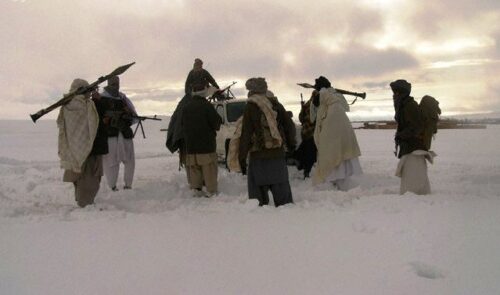
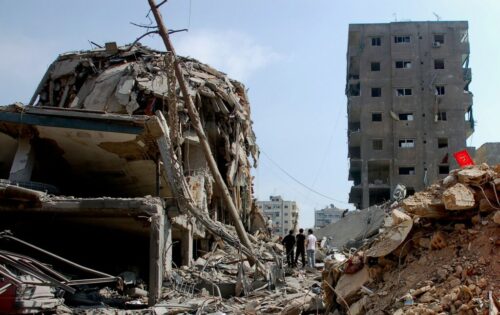



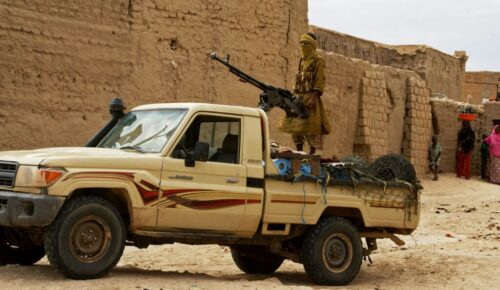
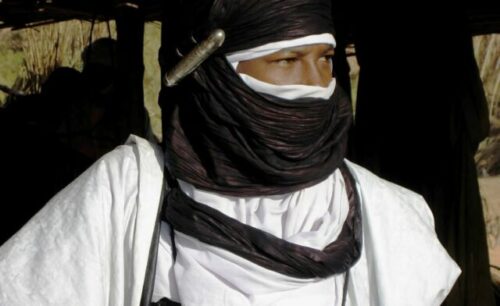
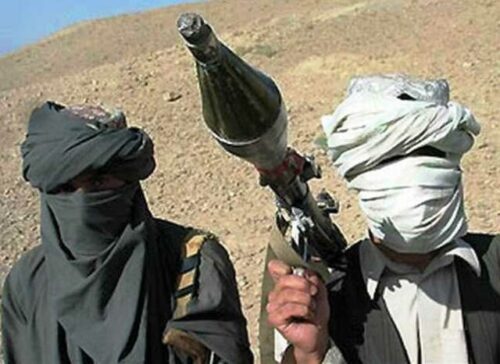
 Photo Credit:
Photo Credit: 




![Nassima al-Sadah, left, and Samar Badawi were held in detention for nearly three years [AFP & EPA]](https://www.aljazeera.com/wp-content/uploads/2021/06/h_54533447-2.jpg?resize=770%2C513)


